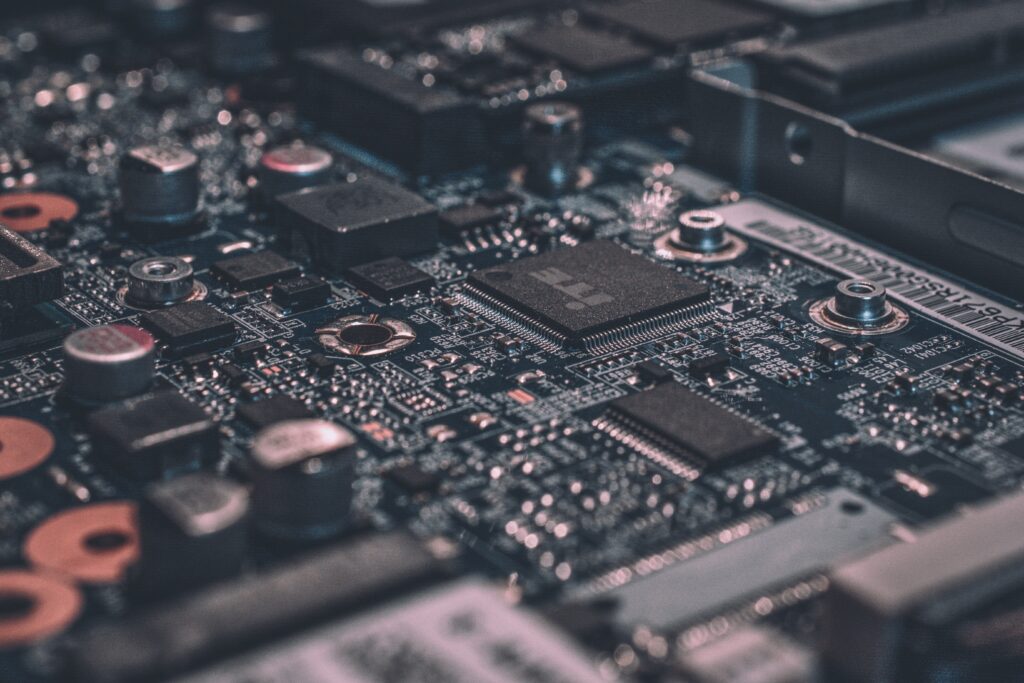With the rapid advancements in artificial intelligence (AI) technology, many professionals are understandably concerned about the potential impact on their careers. The question lingers: what jobs are safe from AI? In this article, readers will discover a range of industries and roles that are less likely to be affected by the rise of AI. From creative and interpersonal skills to specialized knowledge and critical thinking, certain professions still require the human touch. By understanding which areas are less susceptible to automation, individuals can make informed choices about their career paths and take advantage of the opportunities that lie ahead.

Overview of AI and its Impact on Jobs
Artificial Intelligence (AI) refers to the ability of machines or computer systems to perform tasks that would typically require human intelligence. This technology has rapidly advanced in recent years, leading to significant changes in various industries and job markets. The impact of AI on employment is a topic of great interest and concern, as it has the potential to automate many job roles and tasks that are currently performed by humans.
Definition of AI
AI encompasses various technologies, including machine learning, natural language processing, and robotics. Machine learning allows computers to analyze and interpret data, enabling them to learn and improve their performance over time. Natural language processing enables machines to understand and interact with human language. Robotics involves the development and integration of physical machines that can perform tasks in a manner similar to humans.
The Rise of AI in the Job Market
AI has gained significant prominence in the job market, with many industries adopting this technology to increase efficiency, productivity, and effectiveness. AI is being used in sectors such as healthcare, finance, manufacturing, customer service, and transportation. As AI continues to advance, it is expected to have a substantial impact on the types of jobs available, the skills required, and the nature of work itself.
Impact of AI on Employment
The increasing presence of AI in the job market raises concerns about job displacement and the future of work. While some jobs may become obsolete due to automation, new employment opportunities are also emerging. The impact of AI on employment can be categorized into various areas, including jobs requiring complex human interaction, emotional intelligence, critical thinking and problem-solving, creativity and innovation, manual dexterity and fine motor skills, leadership and decision making, adaptability and learning agility, physical presence or contact, and ethical decision making.

Jobs Requiring Complex Human Interaction
In certain job roles, complex human interaction is crucial and cannot be easily replaced by AI. Jobs in this category include counselors and therapists, who provide emotional support and guidance to individuals experiencing various challenges. Social workers play a vital role in assisting vulnerable populations and advocating for social justice. Teachers and educators engage in direct instruction, mentorship, and counseling to help students learn and develop. Customer service representatives serve as a point of contact for customers, assisting them with inquiries, issues, and providing personalized support. Lastly, creative and performing artists bring unique perspectives and expressions through their work, connecting with audiences on an emotional level.
Jobs Requiring Emotional Intelligence
Emotional intelligence is a fundamental aspect of certain professions and involves the ability to understand, manage, and express emotions effectively. Psychologists and psychiatrists possess expertise in diagnosing, treating, and supporting individuals with mental health concerns. Human resources professionals play a crucial role in managing employee relations, addressing conflicts, and fostering a positive work culture. Life coaches provide guidance, motivation, and accountability to help individuals reach their personal and professional goals. Nurses and caregivers provide compassionate care to patients, offering emotional support during challenging times. Social media influencers build personal connections with their followers, leveraging their emotional intelligence to influence and inspire.

Jobs Requiring Critical Thinking and Problem-Solving
AI may excel in processing vast amounts of data, but certain job roles require human cognitive abilities such as critical thinking and problem-solving. Data scientists analyze complex datasets, identify patterns, and derive insights to inform decision-making. Research analysts investigate and explore various topics, uncovering new knowledge and contributing to the advancement of their respective fields. Policy makers and strategists evaluate information and develop effective strategies and policies to address societal and organizational challenges. Lawyers and judges utilize legal expertise, reasoning, and judgment to navigate complex legal contexts. UX designers create user-centered experiences by understanding human needs and preferences.
Jobs Requiring Creativity and Innovation
Creativity and innovation are areas where human ingenuity excels, making certain jobs less susceptible to automation. Artists and designers produce original works of art and design, engaging viewers on an emotional and aesthetic level. Writers and authors use their creativity to craft compelling stories and content that captivate readers. Marketing and advertising experts develop creative strategies and campaigns to effectively promote products and services. Film directors and producers bring unique visions to life, telling stories through visual and auditory means. Entrepreneurs leverage their creative thinking and innovation to identify market gaps and develop new products or services.
Jobs Requiring Manual Dexterity and Fine Motor Skills
While AI may be capable of performing certain physical tasks, jobs requiring intricate manual dexterity and fine motor skills remain essential and challenging to replicate. Surgeons and physicians perform delicate surgeries and procedures, requiring precision and coordinated movements. Chefs and cooks create culinary masterpieces, utilizing their dexterity and culinary expertise to prepare exquisite dishes. Hair stylists and barbers craft intricate hairstyles, requiring precise cuts and styling techniques. Craftsmen and artisans create handmade goods, showcasing their talent and precision. Athletes and dancers execute complex movements, showcasing their agility, coordination, and physical prowess.
Jobs Requiring Leadership and Decision Making
Leadership and decision-making involve strategic thinking, vision, and the ability to guide and influence others. These qualities are crucial in various job roles that are less likely to be replaced by AI. CEOs and executives provide high-level direction, strategic decision-making, and leadership to organizations. Managers and supervisors oversee teams, allocate resources, and make decisions to ensure operational efficiency. Politicians and government officials are responsible for making decisions that shape public policies and regulations. Military officers provide strategic and tactical leadership to the armed forces, making critical decisions that impact national security. Non-profit organization directors lead and manage non-profit organizations, making decisions to fulfill their missions and drive social change.
Jobs Requiring Adaptability and Learning Agility
Adaptability and learning agility are highly valuable skills in a rapidly changing world. Certain job roles require individuals who can quickly adapt to new technologies and environments, making them less susceptible to AI disruption. Scientists and researchers continuously adapt to new findings, technologies, and methodologies in their pursuit of knowledge and innovation. Engineers and technicians possess diverse skill sets that allow them to adapt to different projects and challenges. IT professionals stay updated with the latest technological advancements, adapting to new systems and solving complex technical issues. Consultants are experts in their respective fields, adapting their skills and knowledge to address specific client needs. Teachers and trainers continually adapt their teaching approaches to cater to diverse learning styles and emerging educational trends.
Jobs Requiring Physical Presence or Contact
While AI can enhance various services, certain job roles require physical presence or contact that is difficult to replicate. Massage therapists apply hands-on techniques to relieve muscle tension and promote relaxation. Personal trainers provide one-on-one guidance, physical support, and motivation in fitness settings. Physical therapists assist patients in regaining mobility and physical function through manual exercises and interventions. Tour guides provide informative and engaging experiences, leading visitors through various historical, cultural, or natural sites. Event planners coordinate and oversee in-person events, ensuring smooth execution and attendees’ satisfaction.
Jobs Requiring Ethical Decision Making and Judgment
Ethical decision-making and judgment are characteristic of certain professions where moral considerations are paramount. Law enforcement officers are responsible for upholding laws, maintaining order, and making ethical decisions in challenging situations. Judges and magistrates ensure fair and just legal outcomes, considering legal principles and ethical considerations. Ethics consultants provide guidance, advice, and ethical frameworks to organizations and individuals facing complex ethical dilemmas. Religious leaders guide their communities, providing spiritual guidance and counseling based on moral principles. Professional advisors, such as financial or legal advisors, make ethical decisions while providing guidance and support to their clients.
In conclusion, while AI has the potential to impact various job markets, there are certain roles that require the unique abilities and skills possessed by humans. Jobs requiring complex human interaction, emotional intelligence, critical thinking and problem-solving, creativity and innovation, manual dexterity and fine motor skills, leadership and decision-making, adaptability and learning agility, physical presence or contact, and ethical decision making are less likely to be fully automated. As AI continues to evolve, it is important for individuals to develop and enhance skills that complement and align with the capabilities of this technology, ensuring continued relevance and value in the changing job landscape.














